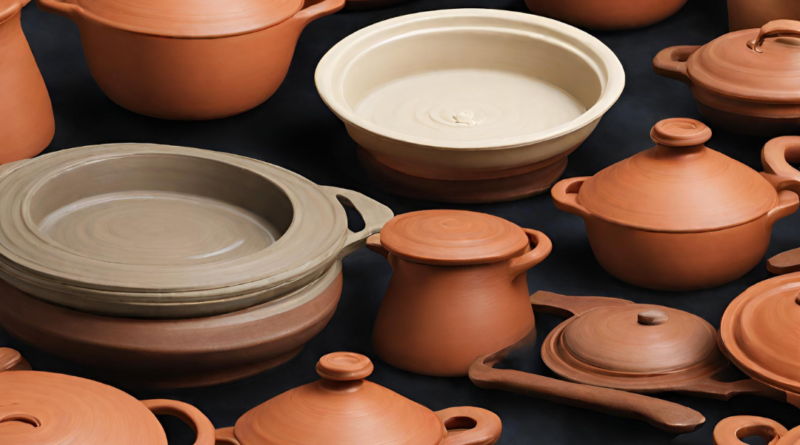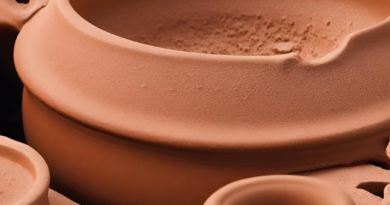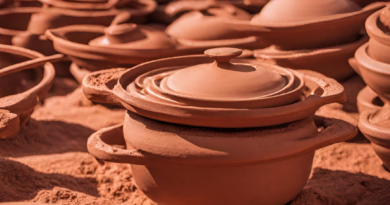Are there health benefits to drinking from clay utensils?
Drinking from clay utensils is believed to offer certain potential health benefits, although scientific research on this topic is limited. Here are some of the claimed health benefits associated with using clay utensils for drinking:
1. Natural Mineral Content
Clay is rich in minerals like calcium, magnesium, and iron. When water or beverages are stored or consumed from clay utensils, these minerals may leach into the liquid, providing trace amounts of essential minerals that can be beneficial for health.
2. Cooling Properties
Clay has natural cooling properties. In hot climates, drinking water stored in clay pots can help keep the water cool naturally without the need for refrigeration.
3. Alkaline pH
Some clay has an alkaline pH, and when used for drinking water, it may help raise the pH of the water, potentially making it less acidic. Alkaline water is believed by some to have health benefits, such as neutralizing excess acidity in the body.
4. Enhanced Taste
Many people claim that water or beverages stored in clay vessels taste better due to the earthy, natural flavor that clay imparts. This can encourage increased water consumption, which is beneficial for overall health.
5. Purification
Certain types of clay have adsorptive properties and can help remove impurities, bacteria, and other contaminants from water. This purification effect can be advantageous in areas with compromised water quality.
6. Aroma Enhancement
Clay has the ability to absorb and release subtle earthy aromas. This can enhance the sensory experience of drinking teas and infusions, making them more enjoyable.
7. Retention of Temperature
Clay vessels, when used properly, can retain the temperature of beverages for longer periods. This can be particularly beneficial for herbal infusions or hot drinks like tea.
It’s important to note that the health benefits of drinking from clay utensils are largely anecdotal and cultural. Scientific studies on these specific health claims are limited, and the effects can vary depending on the type of clay, the source of the clay, and how the utensils are used.
Additionally, while clay utensils can offer potential benefits, there are also considerations related to hygiene and clay quality. It’s essential to properly clean and maintain clay utensils to avoid bacterial growth and contamination.
If you choose to use clay utensils for drinking, it’s advisable to do so in conjunction with a balanced and healthy diet and lifestyle. As with any health-related practice, it’s a good idea to consult with a healthcare professional if you have specific health concerns or are seeking to address specific health issues through clay utensils or any dietary changes.



